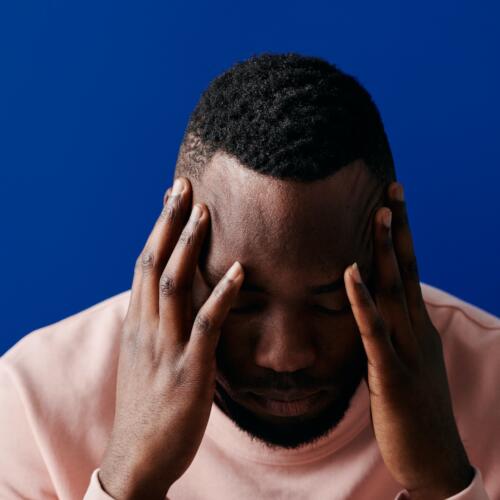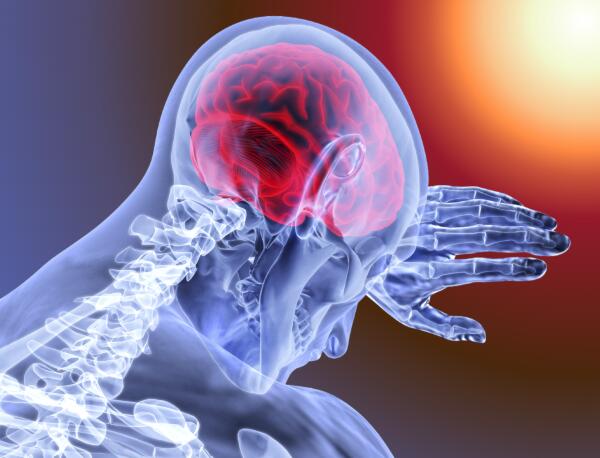 Migraines are a common health condition that can develop at any age. They often start during puberty and usually peak between the ages of 35 and 45 years.
Migraines are a common health condition that can develop at any age. They often start during puberty and usually peak between the ages of 35 and 45 years.
Women are more susceptible to migraines than men, with 1 in every 5 women and around 1 in every 15 men experiencing migraines. However, the reason behind this is unknown. It is suggested that migraines are hereditary in about half of all cases.
A migraine typically feels like a throbbing pain on one side of the head that can leave you with an intense headache.
Migraines can be debilitating, making it difficult or impossible for you to carry on with your normal day-to-day activities.
During a migraine, some symptoms you may experience are:
- Throbbing or pulsing pain on one side of your head
- Sensitivity to light and sound
- Nausea
- Vomiting
Other symptoms may develop during a migraine attack, such as pain in the neck and face, sensitivity to other senses like smell and touch, sweating, stomachache, or diarrhoea. But these additional symptoms are not felt by everyone who has a migraine.
There is currently no exact cause of migraines; however, they are thought to be the result of temporary changes to chemicals, nerves and blood vessels in the brain.
The different types of migraines
Not all migraines are the same. It is normal for sufferers to experience completely different symptoms depending on their personal triggers and patterns.
There are several types/stages of a migraine, including:
- Migraine with aura – this is where there are specific warning signs just before the migraine begins. The sign usually affects your sight, such as seeing flashing lights or blind spots. Auras usually last anywhere between 5 and 60 minutes.
- Migraine without aura – this is the most common type, where the migraine happens without any warning signs.
- Aura without migraine headache – also known as a "silent migraine," this is where symptoms of an aura occur, but no headache develops afterwards.
Other types of migraines can include vestibular migraine, which causes dizziness or vertigo alongside a severe headache, or an ocular migraine. Ocular migraines can cause temporary blindness or visual disturbances in 1 or both eyes, accompanied by a headache before, during or after the visual disturbance.
Migraines can be mistaken for other headache conditions, such as cluster headaches or trigeminal neuralgia. If you're unsure whether the headache you're experiencing is a migraine, speak to your doctor.
How long does a migraine last?
Migraines typically last anywhere between 4 and 72 hours, according to the NHS.
However, for some people, a migraine can be particularly severe, lasting for days at a time. In chronic migraine cases, a person can experience migraines continuously for weeks.
Once a migraine has passed, you may feel fatigued for about a week afterwards.
What triggers a migraine?
There are many possible migraine triggers, including hormonal, emotional, physical, dietary, environmental and medical factors.
To help you identify possible migraine triggers, keep a diary tracking your migraines to see if you can pinpoint a consistent trigger. Your diary should be detailed and kept updated as often as possible, both before, during, and after a migraine attack. Consider keeping track of the following information:
- When the headache starts and ends (including the date and time)
- What you were doing when the migraine started
- What you did to try to stop the headache (medications and any other remedies), and whether it was effective
- Where on your head is the pain?
- What kind of pain is it? Does it pulse or throb, or is it more of a dull ache?
- What do you see? Flashes of light, blind spots, or other visual disturbances?
- Your sleeping pattern
- When and what you last ate
- Date of your last menstrual period
A migraine diary is not only beneficial in helping you identify triggers and patterns, but it can also help your GP with the diagnosis process.
How to stop a migraine?
 There is no cure for migraines; however, there are a number of migraine treatments available to help you manage the symptoms and reduce the severity.
There is no cure for migraines; however, there are a number of migraine treatments available to help you manage the symptoms and reduce the severity.
Some people may find one treatment more effective than another for their migraine. It can take a while to find out which treatment, or combination of treatments, can best relieve your migraine. If you are unsure which painkillers you can take for a migraine, speak to your doctor or ask a pharmacist.
The first point of call for many migraine sufferers is usually over-the-counter painkillers, such as paracetamol, aspirin and ibuprofen. These painkillers usually work within 30 to 60 minutes and can help reduce your migraine symptoms. It is best to take them when you first feel a migraine stirring, as this gives the painkillers time to take effect.
If over-the-counter painkillers are not helping to alleviate your migraine symptoms, make an appointment to see your GP about other treatments. They may recommend you take painkillers alongside a type of medicine called a triptan.
Triptan medicines, such as Imigran and Relpax, are specifically formulated to ease the symptoms of a migraine. Triptans are also available as tablets, injections and nasal sprays.
In cases when migraines cause nausea, your symptoms may subside after being sick. However, it’s important to never induce vomiting in an attempt to relieve your migraine, as vomiting can lead to dehydration and make your symptoms worse. For those who experience nausea or vomiting during migraines, your doctor may suggest taking an anti-sickness medicine. There are also ways you can treat nausea at home.
Eating something can sometimes help, too. If you can’t manage a normal meal, try to eat small snacks throughout the day. Avoid spicy foods if they trigger your migraines. Sticking to plain foods when you feel sick can also help, as foods high in acid can irritate the stomach and exacerbate your symptoms.
It’s essential to stay hydrated by drinking plenty of water when experiencing a migraine. Avoid alcohol and coffee, as these can lead to dehydration and worsen your migraine.
You can also try sleeping or lying in a darkened room to help relieve your migraine pain. This can be especially helpful if your migraine makes you sensitive to light and sound.
What to do if your migraines get worse?
If painkillers are not helping your migraines, have stopped working, or you are experiencing more frequent migraines, make an appointment to see your GP.
Overusing pain relief can worsen migraines and headaches, especially if you take them for longer than recommended by your doctor. If you feel you might be overusing your pain relief, speak to your doctor.
Speak to your doctor about alternative migraine treatments if over-the-counter painkillers are not effective for you. They can discuss alternative methods of managing your pain and relieving your symptoms.






